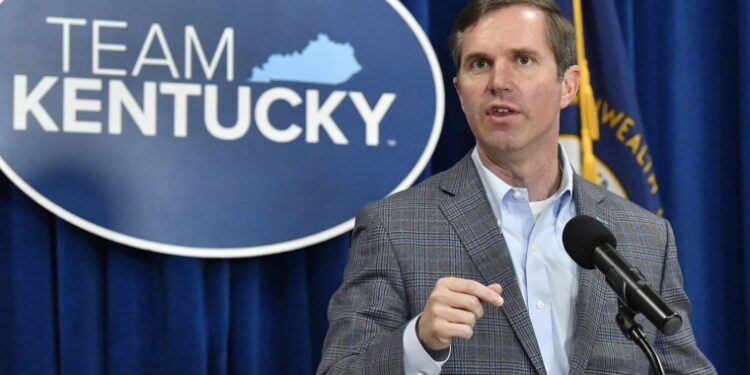After President Joe Biden announced that he’d end his re-election campaign, attention immediately turned to who will replace him on the ticket.
Biden endorsed Vice President Kamala Harris to succeed him as the Democratic nominee, but the decision ultimately rests with the party’s delegates at the national convention in Chicago next month.
That means an array of scenarios could unfold. Harris could quickly unify the party behind her and would be in need of a running mate. Or any number of Democrats could run for the presidential nomination in what is now an open process.
So far, only Harris has said she will run for president, and she hasn’t said anything publicly about who she would consider as a running mate. But here are of the top names Democrats have floated as potential Harris vice presidential contenders or challengers:
Kentucky Gov. Andy Beshear
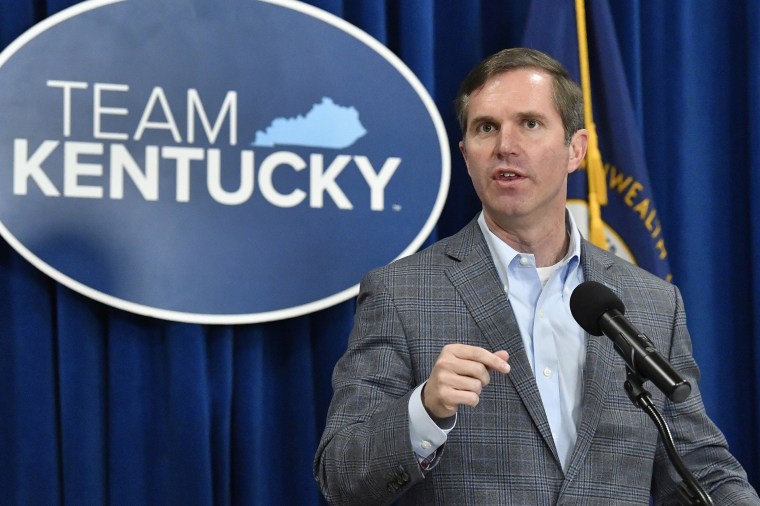
Beshear, 46, brings to the ticket all the political benefits of a southern Democrat who has won convincingly in a conservative state on a pro-reproductive rights message, as well as a generation shift.
Beshear entered the national conversation following his re-election victory in Kentucky in November, winning a state by 5 percentage points that Biden had lost by 26 percentage points in 2020.
His win was largely the product of the unique brand he built in ruby red Kentucky, effectively separating himself from the national party by focusing on state issues. Prominently, he touted the state’s economic progress and his response to natural disasters, including devastating floods. At the same time, he leaned into health care and education — and most heavily his support for abortion rights.
In a statement responding to Biden’s announcement, Beshear praised Biden — and Harris — but did not mention whether he was formally backing her.
Transportation Secretary Pete Buttigieg
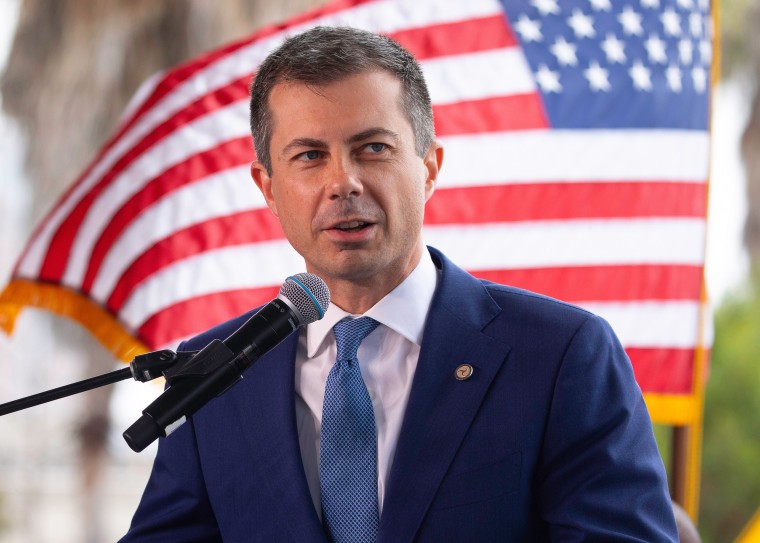
Buttigieg, 42, came seemingly out of nowhere when he rocketed to the top of Democrats’ crowded 2020 presidential field, wowing primary voters with his beyond-his-years intelligence, personal story, and rhetorical chops.
The former South Bend, Indiana, mayor beat out far more established rivals to win the Iowa Caucus caucuses, but struggled with voters of color and dropped out of the race to endorse Biden, helping to consolidate support around him. In the Biden administration, Buttigieg has been one of Biden’s most visible and capable surrogates, often going on TV to speak on behalf of the administration, especially on transportation policy.
The openly gay Navy veteran is raising twins with his husband, Chasten, who has become a cultural figure in his own right on the left. Given his native Indiana’s conservative lean, Buttigieg has been rumored to be considering higher office in other states, such as Michigan, where Chasten is from.
Buttigieg released a statement saying Biden is “among the best and most consequential presidents in American history” and endorsing Harris.
North Carolina Gov. Roy Cooper
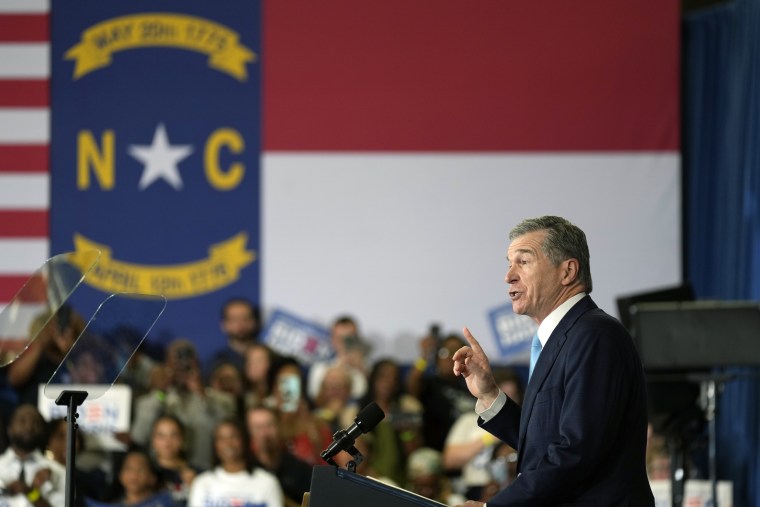
Cooper, 67, would bring to the 2024 ticket a southern Democrat with a strong winning track record and political crossover appeal. He won both his gubernatorial races in years Trump carried North Carolina at the presidential level.
As governor, Cooper has been a champion of abortion rights in a state where Republicans enjoy close to a supermajority in the Legislature. While he has vetoed several anti-abortion bills, some of them have been overridden by the Legislature, including a ban at about 12 weeks of pregnancy that went into effect in July 2023. He’s also focused heavily on expanding Medicaid and signed a law in 2023 doing so after Republican lawmakers got on board and passed bills through both chambers.
Cooper has at times made little secret of his flirtation with higher office. In an interview with NBC News in March, Cooper said, “I love public service, I think I have more in the tank, and I will see what options I have after I leave office.”
Cooper threw his support behind Harris in a post on X after Biden dropped out.
Arizona Sen. Mark Kelly
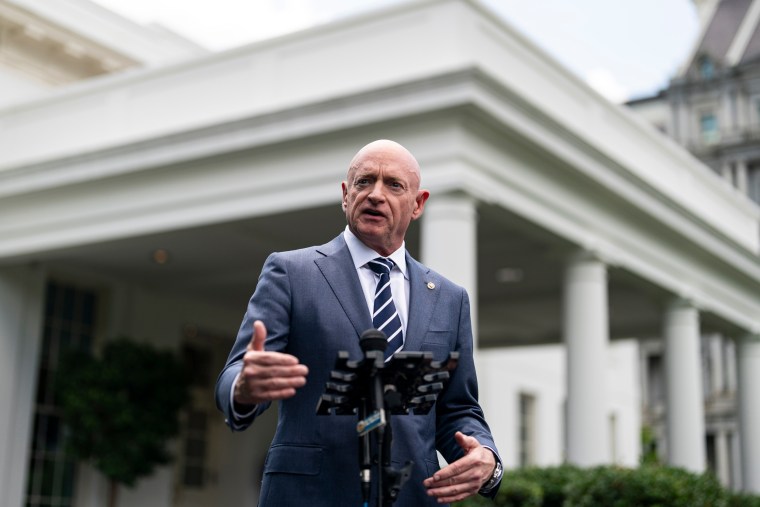
Sen. Mark Kelly, D-Ariz., has won twice statewide in Arizona, a historically red state that is now ultra-competitive. He won a special election to the Senate in 2020, a year where control of Congress was decided by wafer-thin margins. He won again in 2022, defying GOP expectations of a red wave under a Democratic president’s midterm election.
As a former astronaut with a reputation for pragmatism, Kelly’s political talents have been noticed. In the Senate, he has leaned in on local issues like water conservation and microchip manufacturing. He’s the husband of former Rep. Gabby Giffords, D-Ariz., who was shot in 2011 and has since gone on an inspiring journey that includes becoming a prominent gun safety advocate. Republican operatives have privately lamented that Kelly is teflon with voters.
He’s the type of candidate the GOP might have a hard time rallying against. Kelly has also managed to navigate a divide between Arizona progressives and moderates that bedeviled fellow Sen. Kyrsten Sinema, a Democrat-turned-independent who is retiring after one term.
Kelly endorsed Harris to replace Biden on the top of the ticket in a statement Sunday.
West Virginia Sen. Joe Manchin
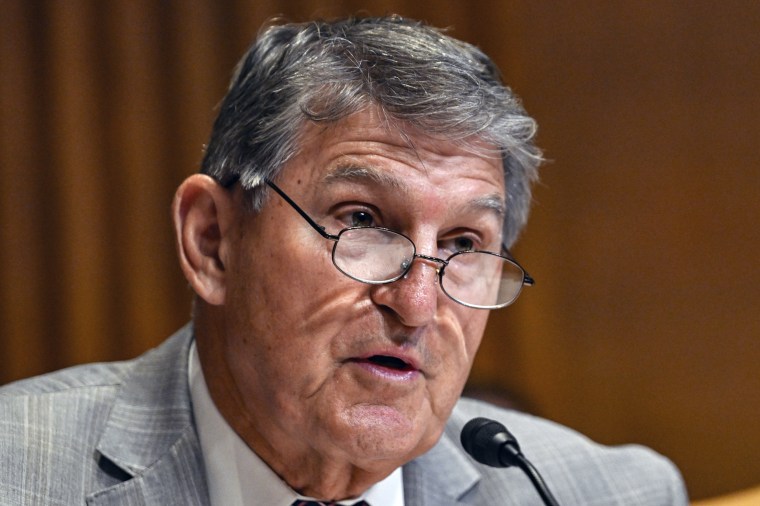
Manchin, 76, is eyeing a run for the White House and is not planning to endorse Harris, according to two sources who spoke to the West Virginia senator.
Manchin conducted a listening tour of the U.S. earlier this year, fueling speculation that he was considering a third-party presidential bid. (He even floated GOP Sen. Mitt Romney as a prospective running mate). Manchin left the Democratic Party in May, registering as an independent.
He served as West Virginia governor from 2005 to 2010, when he won a special election to fill a Senate seat left vacant by the death of Democrat Robert Byrd. Manchin won a full Senate term in 2012 and a second term in 2018. He is not running reelection this fall. Manchin has arguably been the most conservative member of the Senate Democratic Caucus, burnishing a reputation for going his own way.
Maryland Gov. Wes Moore
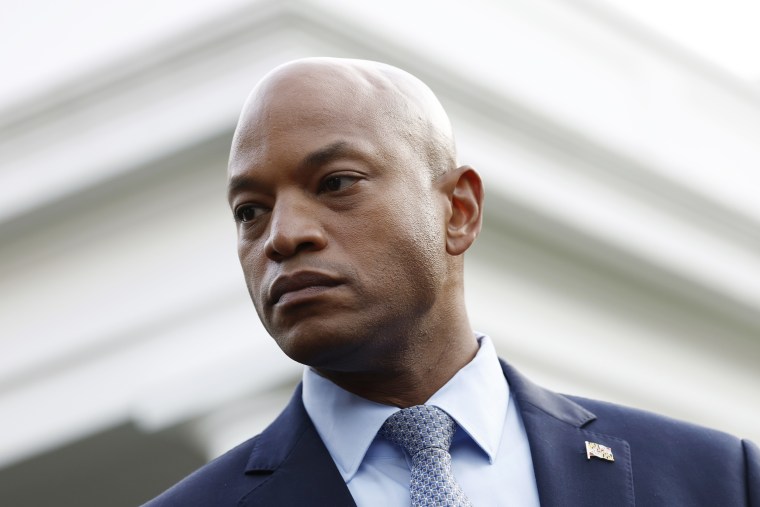
Moore — a 45-year-old U.S. Army combat veteran and Rhodes Scholar — had been a political newcomer before his gubernatorial bid. But his 32-percentage-point win that made him just the third elected Black governor ever, as well as his personal story (his father died when Moore was a child, prompting moves and instability) and his youth helped quickly make him a rising star in the Democratic Party.
His name had been floated as a potential contender in 2028 — but it’s not impossible that Democrats see Moore’s personal story, and his electoral success, as too good to pass up in the current moment.
Moore has less experience than most of the other names on this list, but a recent bridge collapse in Baltimore propelled him into a high-profiled disaster response role.
Moore, in a statement responding to Biden’s announcement, praised both Biden and Harris, but did not make mention of a formal endorsement of Harris.
California Gov. Gavin Newsom
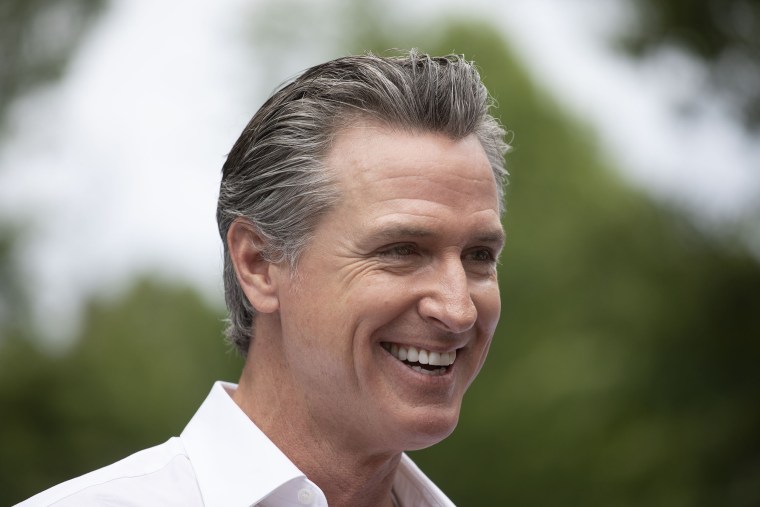
Newsom, 56, has a long history with Harris going back to their days coming up in San Francisco politics together. Only three years apart in age, they have shared several key advisors and donors over the years and had parallel career arcs — an experience that has made them both allies and, at times, rivals, seen as somewhat to Harris’ left politically.
Newsom was mayor of San Francisco at the same time Harris served as the city’s district attorney. And they were both elected to statewide office in the same year, 2010, when she became California’s attorney general and Newsom became lieutenant governor.
A people-person to his core, Newsom is an ambitious and hard-working political operator, drawing on deep networks of wealthy supporters from Hollywood, Silicon Valley and California’s wine country — before politics, he founded a boutique winery with a billionaire heir to the Getty family, the benefactors of one of Los Angeles’ premier art museums. More recently, he has built a large national following as a progressive leader.
But he and Harris’ shared California roots could also present a legal hurdle since the Constitution mandates that the president and vice president hail from different states.
While Newsom had previously said he wouldn’t run against Harris for the nomination, his statement issued after Biden dropped out didn’t make mention of a formal endorsement.
Illinois Gov. J.B. Pritzker
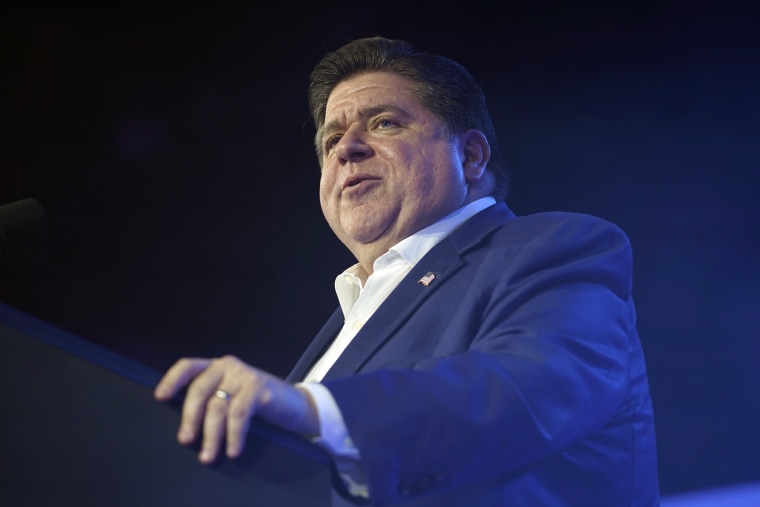
Pritzker, 59, was an active Biden campaign surrogate, traveling to battleground states to stump for the president. He founded a nonprofit committee, Think Big America, to advocate for abortion rights and to combat extremism with a focus on battleground states.
The second-term governor is popular in the state and has been outspoken on protecting reproductive rights for women and has held up Illinois as a beacon for women seeking access to care. Pritzker has signed a host of progressive initiatives into law, including a ban on assault weapons, ghost guns and switches; an increase to the minimum wage, enshrined abortion protections into law, legalized cannabis and expunged records. He has invested in early childhood education, working toward universal pre-school in the state.
Pritzker has also demonstrated considerable political savvy, having landed the 2024 Democratic National Convention in his state after repeated lobbying. Pritzker is widely considered to be a future presidential contender. As a billionaire who has self-financed his campaigns in the past, he is positioned to effortlessly step into a national campaign and immediately be flush with cash.
In a statement issued after Biden’s announcement, Pritzker did not address whether he would run for president or endorse Harris.
Pennsylvania Gov. Josh Shapiro
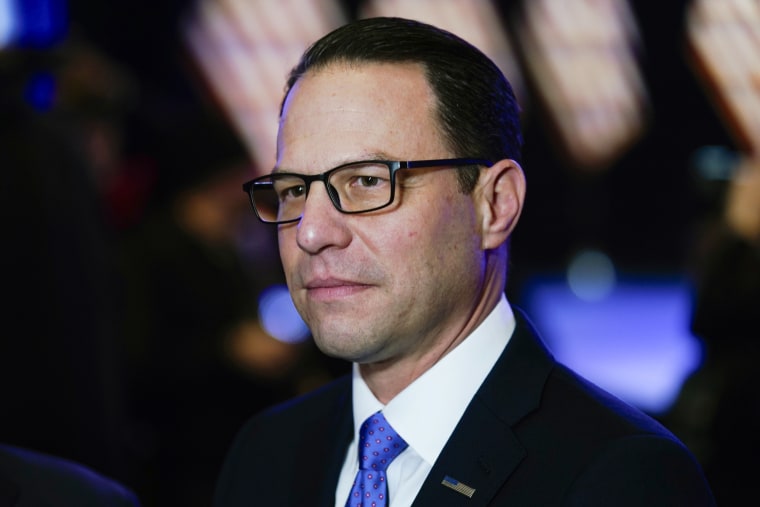
Shapiro, 51, brings to the table a substantial record of outperforming other Democrats running on the same ballot in the most pivotal of swing states, Pennsylvania. Shapiro ran ahead of 2016 Democratic presidential nominee Hillary Clinton when he sought the state attorney general post that fall, outperformed Biden in 2020, and then won in a landslide in his 2020 race for governor.
Shapiro first was elevated onto the national scene as state attorney general for a high-profile investigation into sexual abuse in the Catholic church and fighting to defend his state’s election after the 2020 vote as former President Donald Trump battled to overturn the vote. Now, he’s dealing with perhaps the most important moment of his political career as he handles the fallout from the attempted assassination against Trump that took place in his state.
The Keystone State governor enjoyed a relatively high level of support from Republicans in his 2022 run compared to other Democrats and maintains decent approval ratings across the aisle.
Shapiro has released a statement Sunday saying he is backing Harris for president.
Georgia Sen. Raphael Warnock
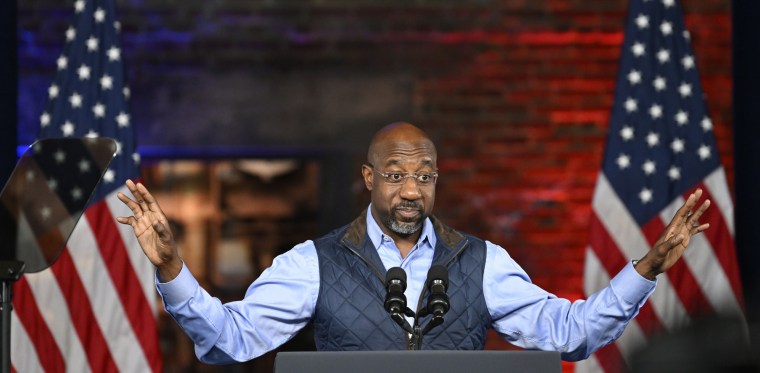
Before entering national politics, Warnock, 54, had been the pastor at the Ebenezer Baptist Church in Atlanta — enjoying the influence and historical importance of speaking from the pulpit of the church of Martin Luther King, Jr, one of the most storied in America.
Since then he’s been repeatedly put to the electoral test in a key battleground state. Warnock has been on the ballot five times since 2020: One Democratic primary, two general elections and two runoffs — and he’s finished first each time.
He was the first Black person elected senator from Georgia — and his elevation to a national ticket would likely energize Black voters across the U.S. who polls show had been flocking away from Biden.
One major drawback to Warnock leaving the Senate, however, is the fact that Democrats would lose the seat if he was on a winning presidential ticket. Under Georgia law, Georgia GOP Gov. Brian Kemp, a Republican, would appoint a successor if Warnock left the seat, and Kemp would be certain to appoint a Republican — throwing into further question Democrats’ ability to maintain their narrow majority.
Warnock had not publicly commented on Biden’s decision or Harris’ candidacy as of Sunday evening.
Michigan Gov. Gretchen Whitmer
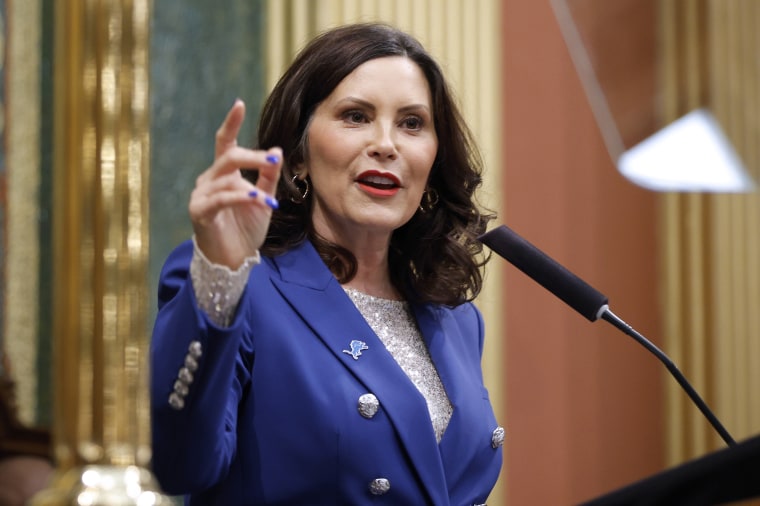
Whitmer, 52 would offer the ticket a Midwestern governor who was re-elected to a second term by a healthy margin after emerging as a Trump foil. She was on stage at a 2020 event in Detroit, where Biden presented himself as a “bridge” to Whitmer and other younger leaders. She eventually cracked his shortlist for vice president.
During the early days of the pandemic, Whitmer’s criticism of the federal response drew Trump’s rage. He branded her, derisively, as “the woman from Michigan.” Later in 2020, the FBI scuttled a plot to kidnap Whitmer by men angry who were angry about her Covid shutdowns.
Whitmer is also known for folksiness and colorful language. “Fix the damn roads!” was the rallying cry for her first campaign for governor. Fight Like Hell is the name of her political action committee. And she has embraced the nickname “Big Gretch,” which was popularized by a Detroit rapper.
Whiter has previously said she wouldn’t run for president in 2024. In a statement issued after Biden’s announcement, she didn’t mention an endorsement for Harris.

